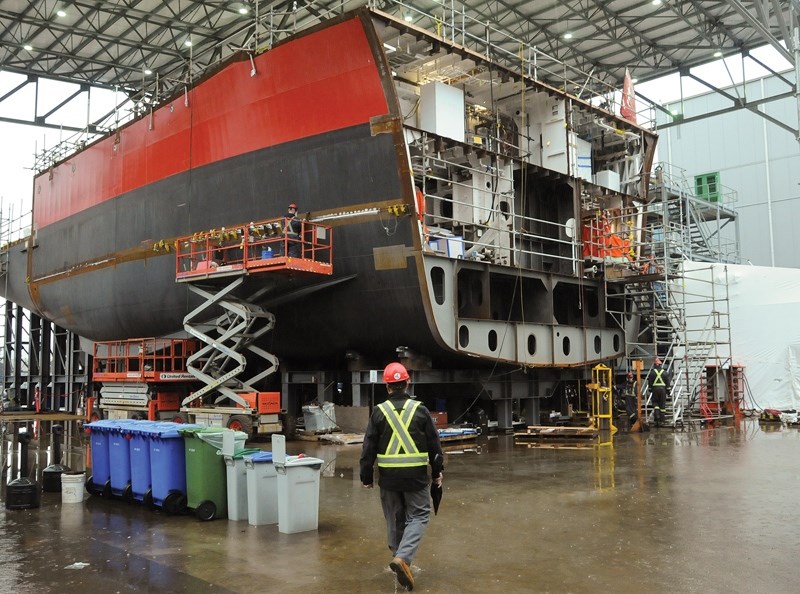A welder at Vancouver Shipyards in North Vancouver has been awarded $1,000 in damages after a labour relations board arbitrator concluded the company violated his rights when it forced him to take three drug tests after a minor workplace accident.
The decision, handed down June 6, involved an accident that happened May 8, 2020, at Vancouver Shipyards, when a long-term employee was moving a large mobile “man lift” into position in order to weld a part of a ship over 27 metres off the ground.
While moving the lift in an area close to another huge piece of machinery, the two pieces of equipment “made contact,” according to the decision.
Damage to the equipment was “negligible” according to the decision, consisting of minor paint scraping.
The welder showed no signs of impairment, but shipyard supervisors decided the accident was a “significant event” anyway, and ordered the worker to take three drug tests, including an oral swab, Breathalyzer and a urine test. All three tests came back negative.
The Marine and Shipbuilders Union challenged that decision, saying the drug tests were an unreasonable invasion of the welder’s privacy rights and not justified under the shipyard’s substance abuse policy.
At a three-day hearing this spring, the shipyard argued that while no measurable damage resulted from the accident, “there was potential for significant damage.”
As the welder’s line of sight wasn’t sufficient to allow him to turn the lift without hitting the other piece of machinery, “a person could have been nearby and could have been struck or crushed,” according to the company.
That constituted a “near miss,” the shipyard argued.
But the union argued that as no significant damage resulted and there was no significant risk of injury, the accident didn’t meet the standard required to ask for a drug test.
In deciding for the union, arbitrator Randall Noonan concluded that “while an incident need not be catastrophic, it must be substantial or significant” to meet the test.
“To allow testing to occur based on worst-case scenarios or remote possibilities would justify tests in virtually any situation,” he wrote.
The requirement for the drug test without reasonable cause violated the worker’s privacy and bodily integrity rights, Noonan wrote.
He ordered Vancouver Shipyards to pay the worker $1,000. He also ordered that all records about the demand for the drug test be removed from the welder’s personnel file.





